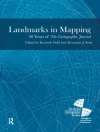This book explores how digital platforms in the realm of tourism and hospitality have shaped social and material worlds. Based on extensive ethnographic fieldwork with hosts and guests, the book analyses the impacts of platforms on the scale of the city, the home, and the everyday life of individuals. The book first situates platforms within the broader history of digital developments in tourism and questions what is essentially new about these socio-technical formations? The following chapters demonstrate how platforms have affected urban housing, challenged the tourism sector, and transformed understandings of hospitality and home. This is illustrated through a case-study of Airbnb’s development and impact in Sofia, Bulgaria. The final chapters of the book reflect on the political dimensions of datafication processes and digital systems of measurement that underpin the platform’s workings, showing how the platform economies of tourism benefit their users in highly uneven ways.
สารบัญ
1. Introduction.- 2. A brief history of tourism platforms.- 3. The socio-spatial impacts of Airbnb.- 4. Airbnb-ed homes and everyday life.- 5. Datafication of everyday life and bodies.- 6. Conclusion.
เกี่ยวกับผู้แต่ง
Maartje Roelofsen is a postdoctoral researcher at the Universitat Oberta de Catalunya, Spain. She has longstanding teaching- and research experience in the fields of
Tourism,
Geography and
Planning. Her work has been concerned with the digital transformations of urban space, everyday life, leisure and the tourism economy.












